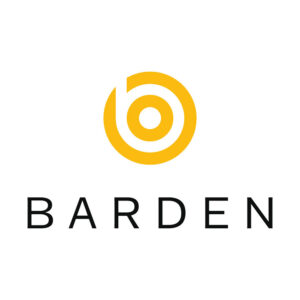There’s no getting away from it. If you haven’t already, it’s time to embrace, build and promote your online presence. As a technology professional, your LinkedIn profile is your online brand and should be thought of as a tool to catch the eye of in-house recruiters, agency recruiters, and hiring managers alike.
Having a great LinkedIn profile is not just important when you are looking for a job – it is a way to stay connected with your peers, participate in your professional community, and a host of other things, not the least of which is giving you the opportunity to be discovered for that ideal role.
Not sure where to start? Here Ed Heffernan, Partner with Barden’s Technology practice shares his key tips on using LinkedIn as an technology professional…
#1 It only takes 30 seconds for a recruiter to scan your LinkedIn profile.
If you want to make a good impression, you need to do it quickly. Recruiters scan through hundreds of profiles daily, and their decisions will be made on a quick glance. Use your summary title (the title under your name) and your profile summary to communicate your skill-set fully. For example, instead of placing ‘IT Professional’ in your title, what about saying “Cyber Security Executive” | IT Systems Support Field Engineer | IT Business Relationship Manager | Senior IT Security Analyst – the more key words the better. You have 120 characters so use them! Additionally, ensure you’ve updated all of your academic and career information so that recruiters can tell what stage you are at with your experience and career journey.
#2 Be accurate and be conscious that your profile is public, but don’t be afraid to promote yourself.
Ensure all dates of employment are correct and that your dates mirror those on your CV. The last thing you want is a HR manager or potential employer noticing a discrepancy between your CV and LinkedIn profile. Be sensitive to any detail you might be prohibited to include and think about the fact that your colleagues and superiors can view this, so don’t include details like “seeking new opportunities” while you are still carrying out employment, unless you want to open a can of worms.
On the other hand, don’t shy away from disclosing details about you and your career on LinkedIn. It’s a recruiter’s first glimpse of you, so blending into the crowd is not an option if you want to get ahead. Use an appropriate style of writing and style of language bearing in mind your target audience. Be personal – think of your LinkedIn summary like the landing page of a website, you need to give people a reason to stay and read on. Including awards and articulating what makes you good at your job, and why you stand out above others is a good place to start.
#3 Who do I connect with and what groups do I join?
When you’re new to LinkedIn it’s understandable that random connections from people you don’t know might seem a bit odd. Remember that it is a networking tool, and could be a main method of building a professional network that will be hugely valuable to you in the future. Make sure to leverage your current network and those who you’ve crossed paths with in the past; connect with former colleagues that you have had a good relationship with; and look at those ‘random’ connections with a more open view. Do they have some connection or potential value to you – could they connect you with someone you would like to target, or are they a recruiter who it might be useful to be connected with, even if you’re not looking for a job right now?
Above all, don’t forget to ‘use’ LinkedIn! It’s not only useful for scanning through the news-feed for topics or browsing jobs, but can be useful for finding out valuable information about potential interviewers. When you’re interviewing for a position LinkedIn is a great tool to have for preparation. You have the opportunity to understand their backgrounds and career paths to date before meeting with them. It’ll help create context around the team, make it easier to build rapport with them and look impressive that you’ve gone to the effort of understanding their careers.
Finally don’t forget to include a (professional) picture! Not a selfie…definitely not a selfie.
Need help to achieve your ambitions?
Just drop us a line today at hello@barden.ie and we will take it from there. Simple.


 Jump Back
Jump Back

